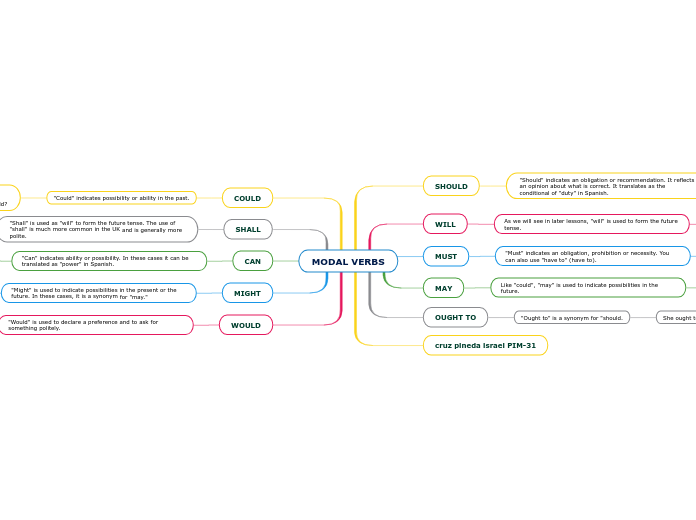
"Should" indicates an obligation or recommendation. It reflects an opinion about what is correct. It translates as the conditional of "duty" in Spanish.
I should call my parents more often.
You shouldn’t work so hard.
Should we leave a tip?
As we will see in later lessons, "will" is used to form the future tense.
We will learn English.
"Must" indicates an obligation, prohibition or necessity. You can also use "have to" (have to).
You must [have to] brush your teeth two times a day.
When must we meet you?
Like "could", "may" is used to indicate possibilities in the future.
I would bring an umbrella, it may rain later.
May I have a glass of water?
"Ought to" is a synonym for "should.
She ought to quit smoking.
"Could" indicates possibility or ability in the past.
Joe could speak Spanish when he was young.
Could you play an instrument when you were a child?
"Shall" is used as "will" to form the future tense. The use of "shall" is much more common in the UK and is generally more polite.
I’ll take the 3 o’clock train.
Shall we go to the movies or a museum?
"Can" indicates ability or possibility. In these cases it can be translated as "power" in Spanish.
Bill and Tom can’t help you.
Can I have a glass of water?
"Might" is used to indicate possibilities in the present or the future. In these cases, it is a synonym for "may."
I would bring an umbrella, it might rain later.
"Would" is used to declare a preference and to ask for something politely.
She would like to go to New York someday.
Would you like some coffee?